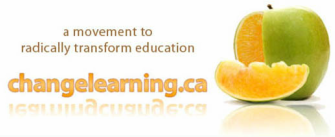(Source: Canadian Council on Learning)
Link:
https://www.childcarecanada.org/documents/research-policy-practice/17/11/let-children-play-natures-answer-early-learning

|
|
|
Play enhances every aspect of children’s development and learning, however, it is increasingly rare for children to have long, uninterrupted blocks of time to play indoors and outdoors, by themselves or with their friends. Although children learn to play naturally, we all have a role in ensuring that children have enough time and opportunity to play.
(Source: Canadian Council on Learning) Link: https://www.childcarecanada.org/documents/research-policy-practice/17/11/let-children-play-natures-answer-early-learning
2 Comments
Success By 6 Peel builds and expands community support for children by strengthening services for young children and their families. Research-informed and neighbourhood-based, Success By 6 Peel envisions a community where all children thrive and are valued, respected, nurtured, loved and given the opportunity to develop to their full potential as creative, caring, competent and responsible adults.
Read more Roots of Empathy (ROE) is an award winning, evidence-based classroom program that has shown dramatic effect in reducing levels of aggression and violence among school children while raising social/emotional competence and increasing empathy. The program reaches children from Kindergarten to Grade 8 across Canada, in English and French, in rural, urban, remote and Aboriginal communities both on and off reserve and internationally in Australia,New Zealand, and the United States.
Read more This program explores the Swedish approach to nursery education. What is the secret to their success? What factors combine to help Swedish children perform so well in European literacy tables?
On the face of it, Sweden’s attitude to teaching nursery children is incredibly relaxed and informal. There is little structured learning, play is paramount, there are few locks or security coded gates and children are encouraged to help with cleaning and catering. Most Swedish children who leave pre-school at the age of six cannot read or write. Yet within three years of starting formal schooling at the age of seven, these children lead the literacy tables in Europe. Read more When a dozen or so educators from Indianapolis traveled to Reggio Emilia, Italy, several years ago to study the famous constructivist approach in that city’s preschools, they came back prepared for more than project-based teaching — they came ready to decorate. Last fall, the group offered elementary school teachers a classroom makeover in the Reggio Emilia style, and Sharon Olson, a teacher at Winding Ridge Elementary School, immediately volunteered.
Read more Play enhances every aspect of children’s development and learning, however, it is increasingly rare for children to have long, uninterrupted blocks of time to play indoors and outdoors, by themselves or with their friends. Although children learn to play naturally, we all have a role in ensuring that children have enough time and opportunity to play.
(Source: Canadian Council on Learning) Link: http://www.ccl-cca.ca/CCL/Reports/LessonsInLearning/LinL20061010LearninPlay.htm On the face of it, Sweden’s attitude to teaching nursery children is incredibly relaxed and informal. Could the absence of testing, inspection and excessive paperwork, combined with a strong emphasis on play and relaxation, be the very secret of their success?
Watch a fascinating video report on the British Teachers TV website: Early Years Education in Sweden “ While schools and parents elsewhere push young children to read, write and surf the Internet earlier in order to prepare for an increasingly cutthroat global economy, some little Germans are taking a less traveled path — deep into the woods. Germany has about 700 Waldkindergärten, or “forest kindergartens,” in which children spend their days outdoors year-round. Blackboards surrender to the Black Forest. Erasers give way to pine cones. Hall passes aren’t required, but bug repellent is a good idea.”
Read full article (Source: Wall Street Journal) |
Categories
All
Archives
August 2015
|